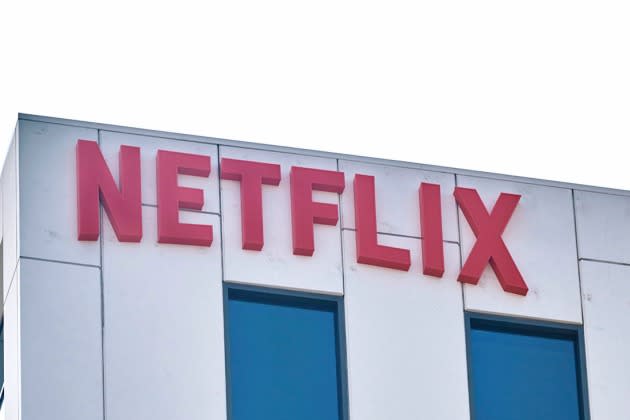Writers Guild Arbitration With Netflix Yields $42M in New Residuals for Members

The Writers Guild told members on Thursday that an arbitration with Netflix over the 2018 Sandra Bullock film Bird Box has resulted in members receiving $42 million in previously unpaid residuals.
A third-party arbitrator in the Bird Box case found that Netflix had underpaid residuals on the film, according to the Guild, thus awarding the film’s writer $850,000 in total residuals with $350,000 in interest. (Arrival screenwriter Eric Heisserer wrote the film, based on the novel of the same name by Josh Malerman.)
More from The Hollywood Reporter
Idris Elba, David Leitch Team for 'Bang!' Spy Thriller for Netflix
Postproduction Workers at ShadowMachine Unionize With the Editors Guild
“As a direct result of this ruling, 216 writers on 139 other Netflix theatrical films are receiving an additional $42 million in unpaid residuals,” the Writers Guild of America East wrote to members in an email on Thursday. “The Guild is now pursuing approximately $13.5 million in interest Netflix also owes writers for late payment of these residuals.” The Hollywood Reporter has reached out to Netflix for comment.
According to the Guild, the dispute arose from Netflix’s entrée into producing their own films written by WGA members, rather than relying on third-party production companies, in 2016. Netflix had negotiated terms with fellow entertainment unions the Directors Guild of America and SAG-AFTRA that let the streamer “pay residuals on significantly less than the cost of the film,” the Guild says, and sought to apply those same terms to the WGA via pattern bargaining.
However, the Guild maintained that the streamer needed to heed the terms of its Theatrical and Television Basic Agreement, which maintains that writers are initially paid when their film is theatrically released and then receive residuals based on what the distributor earns when licensing or exhibiting the film on other platforms, such as streaming or home video. “The typical residual for the credited writer is 1.2% of the license fee paid to the producer for the right to exhibit that film,” the WGA East wrote to members. When a distributor is both producer and distributor of a film title, as Netflix was with Bird Box, the WGA requires companies to calculate the license fee by looking at license fees paid out to third-party producers on similar films.
“This critical definition, negotiated as part of the resolution of our strike in 2008, protects against the undervaluation of license fees through self-dealing,” the WGA East wrote to members. Arguing that Netflix was underpaying residuals based on lowballed license fees, the WGA took Netflix to arbitration. During that proceeding, the Guild told members that it argued Netflix should use the “cost-plus” model it often uses with third-party producers to also calculate its license fees for Netflix-produced films. According to the Guild, the arbitrator determined that Netflix’s license fee on its own projects should amount to 111 percent of the gross budget of a film.
The Guild says the Bird Box ruling has now affected residuals paid out on 139 additional Netflix films. “Including the additional residuals awarded as a result, the 216 screenwriters of these films have now received a total of $64 million in residuals, which is $20 million more than they would have received under the deal accepted by the DGA and SAG-AFTRA,” the WGA East writes. The Guild adds, “Netflix is thus far refusing to pay interest on the late residuals for films other than Bird Box, so the Guild is pursuing in arbitration the $13.5 million in interest still owed these screenwriters.”
In its message to members, the WGA East drew a connection between this ruling and the upcoming negotiations with the studios and streamers over the Guild’s film and television basic agreement, which will expire in the spring of 2023. Those negotiations are widely expected to be contentious, as the Guild seeks to make up for ground lost during the 2020 negotiations on the contract during the onset of the pandemic and to significantly change the current streaming status quo for members.
“Netflix, with only a decade of experience employing writers, has quickly become one of the worst violators of the MBA, requiring the Guild to expend significant resources to protect writers who work for the company,” the WGA East wrote. “The upcoming 2023 MBA negotiation challenges us to address the industry’s rush to use the growth of the streaming model to depress pay and working conditions for Hollywood talent. It is our hope that writers and all Hollywood labor will receive their fair share of the value we together create.”

 Yahoo News
Yahoo News 